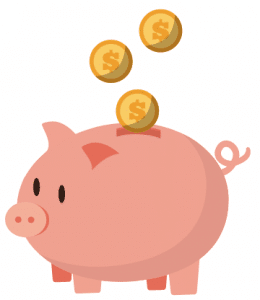Preparing For Spending Shocks
Spending shocks are large, irregular expenses. Spending shocks are the #1 reason why budgets end up abandoned, and being prepared for them is the best thing you can do to keep your personal finances healthy.
There are two types of spending shocks: budgeted and unbudgeted.
Budgeted Spending Shocks
A budgeted spending shock is a big expense you might only see once or twice a year, but you know it’s coming well in advance. This includes things like buying gifts for birthdays or holidays, regular trips to the dentist, and shopping for school supplies.
Unbudgeted Spending Shocks
These are unplanned expenses that you don’t see coming. This includes things like car repairs, fixing a broken computer, or replacing lost/stolen items. Unbudgeted spending shocks can be devastating if you’re not prepared, since they also tend to be very expensive.
Be expected to get some Spending Shocks around May, August, and December!
If your class is playing the Budget Game, the biggest spending shock you’ll encounter is $800. However, just like in real life, you should be prepared for a serious unbudgeted spending shock at any time.
Budget Game Tip
Coping With Spending Shocks

There are two ways you can cope with a major unexpected expense:
- Put it on your credit card. Don’t be afraid of using your credit card to cover cash shortages, so long as you can pay it off within 45 days. Paying a bit of interest isn’t the end of the world, but you won’t be doing your credit score any favors if you take too long carrying a balance.
- Borrow from your Emergency Fund: Your Emergency Fund is for emergencies, so be very careful when you take money out of it. Taking money out of your Emergency Fund will hurt your game score (in the Budget Game) until you refill it. Almost always it will cause you to miss your savings goal for the month. However, if you’re already looking at serious credit card debt, this might be a safer option.